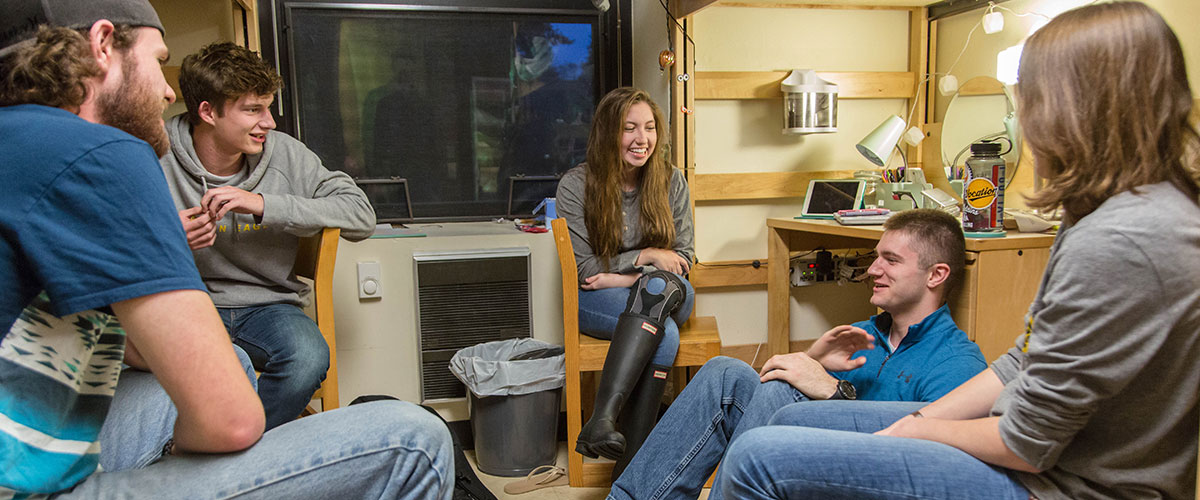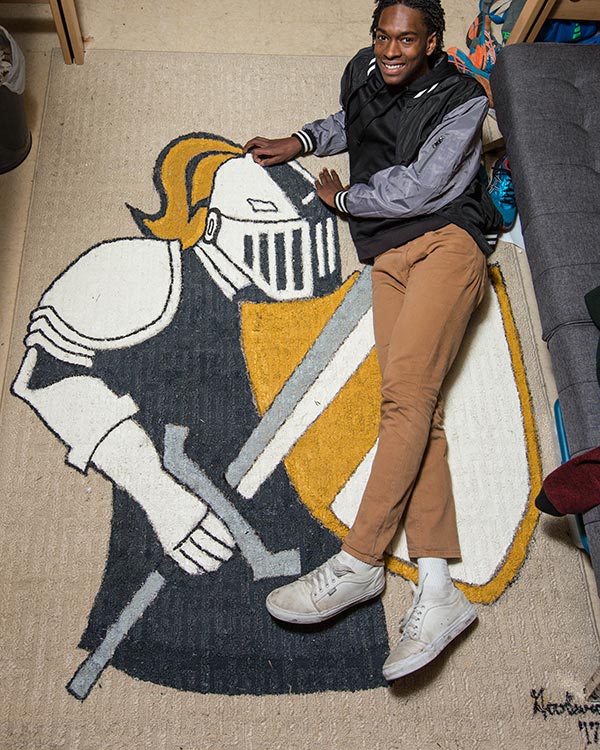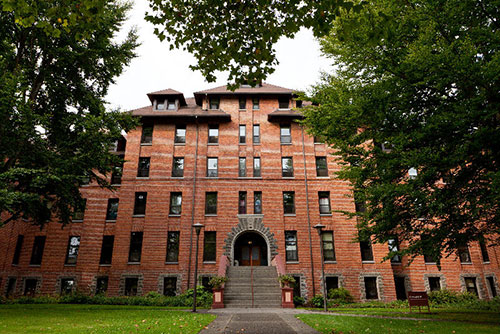If you lived with your classmates, what would learning look like?

By Thomas Kyle-Milward
PLU Marketing & Communications
For many college students, residence halls are the fertile grounds of first-year camaraderie from which lifelong friendships spring. At Pacific Lutheran University, students get to roll that experience over to the classroom by enrolling in courses thematically linked to their Residential Learning Communities (RLCs) — an opportunity to take a class rooted in their personal interests with like-minded neighbors.
“By linking these things together, students now have the opportunity to more multi-dimensionally expand on a topic to increase their learning,” said Jes Takla, Director of Residential Life. “Including critically challenging each other from different perspectives to hopefully foster a love of lifelong learning.”
First-year students at PLU can choose to participate in linked courses that fit the seven distinct RLC themes. Lutes can choose from housing that uplifts gender empowerment and equity, creative expression, DJS (diversity, justice, sustainability), wellness, STEM, global engagement, and more.
Cherish Scheidhauer, a PLU first-year student studying biomedical engineering, didn’t find out about RLCs until well into the admissions process when her admissions counselor mentioned STEM House. “It’s really cool how it brings people together based on their similar interest in STEM, but also it brings a lot of different perspectives as well.”
The linked courses take First Year Experience Program Writing 101 classes and tailor them to relate closely to each specific RLC theme. Writing 101: Democratic Citizenship, for example, blends traditional academic writing elements with a focus on social issues — a perfect marriage for those in Stuen Hall’s Diversity, Justice & Sustainability RLC.
“I think one of the benefits is the courses relate to the communities,” said Jeremy Knapp, a first-year resident of DJS RLC. “The Stuen courses I had available were Democratic Citizenship, Rhetorical Listening and Banned Books. I got a course that’s related to what I care about because I picked a hall that’s related to what I care about.”

But the primary goal of linked courses is to promote an educational environment that doesn’t limit learning to the classroom.
“The community experience has really helped me,” Jeremy said. “It’s allowed the writing class to be more connected to where we live too, so our professor has had a few meetings where we’re actually in Stuen instead of a regular classroom.
“One of them we were talking with a professor that came up from Howard University and we sat down for a discussion with him in Stuen Hall. Another night we had a dinner that we made together as a class, and then we watched the documentary ‘Food, Inc.’”
“I feel like it’s really beneficial because you have that easy access,” said Heze Goodwin, a first-year resident of the Wellness House RLC. “So if you have a question or you need help from someone, you don’t have to travel far for someone to help you. We can all work together and peer review each other’s essays, and I think it’s just the accessibility of everyone living close together makes everyone closer, so I like that aspect of it.”
Those friendships are just another benefit of the linked course learning experience: a ready-made group of friends and study partners for first-year students transitioning from high school to college and adjusting to life on campus.
“It’s amazing how well we get along,” Cherish said. “We already have this similar interest in STEM that brings us together, but my roommate has become my best friend and these people are now like my family. We eat together, we study together, we hang out together… we’ve got so close through this.”




Social Media